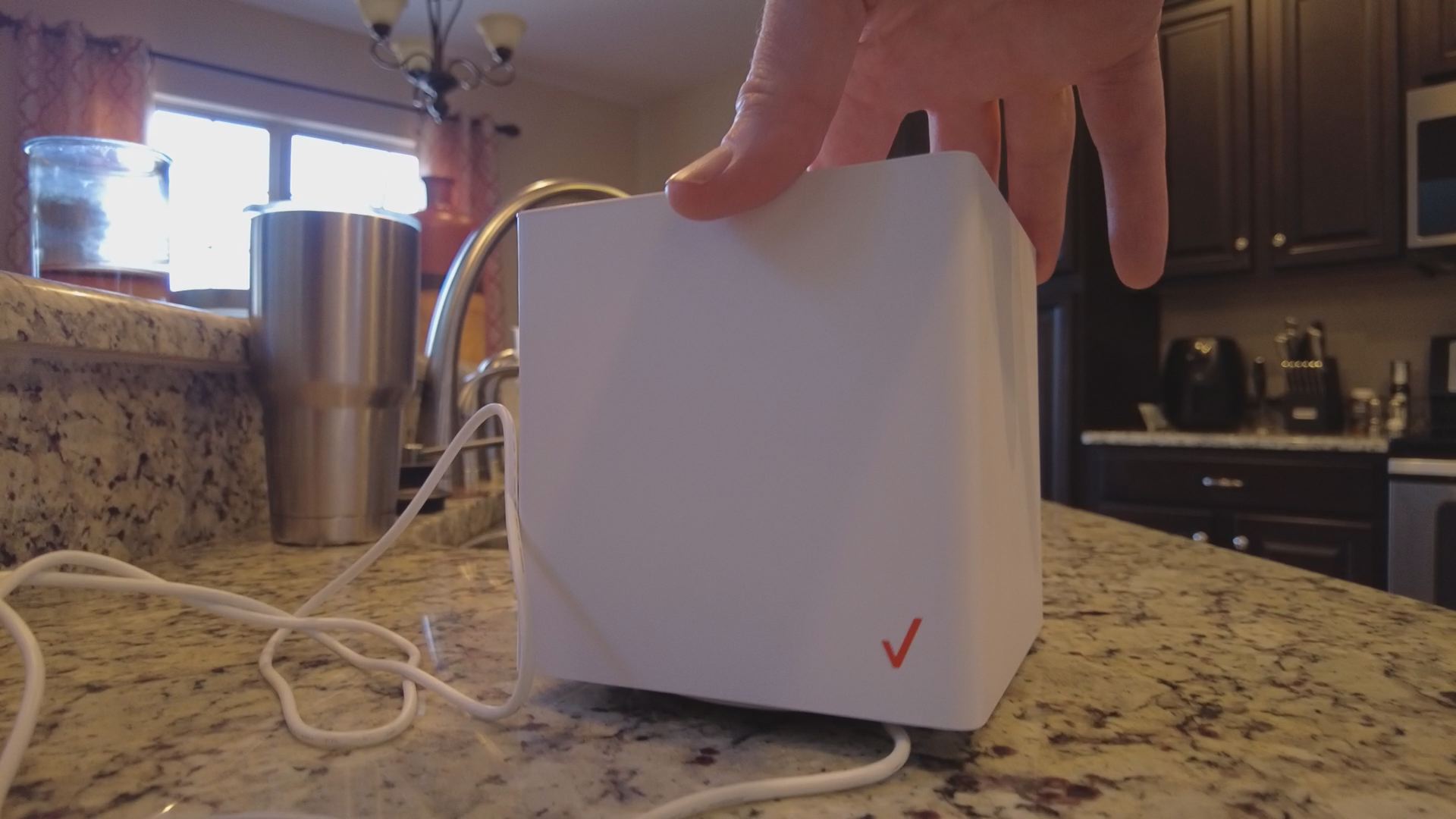- Home
- The Latest
- An Early Look at Wireless Home ...

Install it yourself. No Wires. But is it faster?
It depends.
By now you’ve heard about 5G rolling out to wireless customers across the country. Generally, when we hear “wireless,” we think only of smartphones and mobile devices but 5G technology also allows for those same cell towers to deliver the internet to homes and businesses. Verizon and T-Mobile both have devices that connect to the nearest cell tower to bring the internet into homes using 5G but how well do they work?
Steve Van Dinter from Verizon brought one of their new 5G Home devices to a friend’s house for a hands-on test. He set it up at a friend’s home in suburban Nashville and maybe a mile from the nearest cellphone tower.
Rather than needing to have an installer to set up the device, the small box just connects to a wall outlet for electricity, locates the nearest 5G signal, and connects to the internet.
“All we’re doing is taking it from outside, converting it to WiFi, and then connecting it to your devices,” Van Dinter explained to current Verizon customer Jim Garrett.
Verizon Home is less expensive than cable and fiber
To connect devices, Garrett only needed to scan a QR code on the Verizon Home which is about the size of an old jack-in-the-box toy. It’s white with a small red “V” on the front. It has a much cleaner look than the routers and WiFi boxes with antennas. It’s sharp enough to blend in with the knick-knacks you have on a bookshelf. Since there are no other wires, it can be placed anywhere. We found it received the best connection close to a window on the top floor in a bedroom facing the cell tower.
How fast is it?
In multiple speed tests, the Verizon Home topped out at around 100 megabytes per second compared to the 250 MBS speed Garrett currently gets from his $100/mo cable subscription. If Garrett’s home was closer to Nashville and Verizon’s C-Band Ultra-Wideband tower, the speed would likely be closer to 1,000 MBS.
“Right now 5G ultra-wideband is offered in about 20 million homes,” said Van Dinter. “So you may live in a C-Band area and not currently get offered the product, but keep checking back because they’re going to add cities through the rest of the year.”
As for Garrett, who is currently a Verizon customer, the speed isn’t what he’s getting now, but neither is the cost. Verizon’s home internet is $25/mo for Verizon customers and $50/mo for customers who are not receiving Verizon services.
“The first thing that caught my eye was that box,” said Garrett. “And the fact you can get rid of your routers and all of that and to have that and the setup that easy. I can get rid of a bunch of devices and make space. And it’s wireless. If you’re just streaming TV, I think you’re more than covered.”
Garrett says he and his wife Debra don’t necessarily need 250 MBPS for what they use the internet for. “When you’re talking about a 50% reduction in your monthly bill and I’m watching the same TV because most of the TV we’re watching now is a streaming service, yeah the price advantage”.
 T-Mobile offers a similar device for home internet. AT&T has its fiber internet service for many customers in certain areas.
T-Mobile offers a similar device for home internet. AT&T has its fiber internet service for many customers in certain areas.

